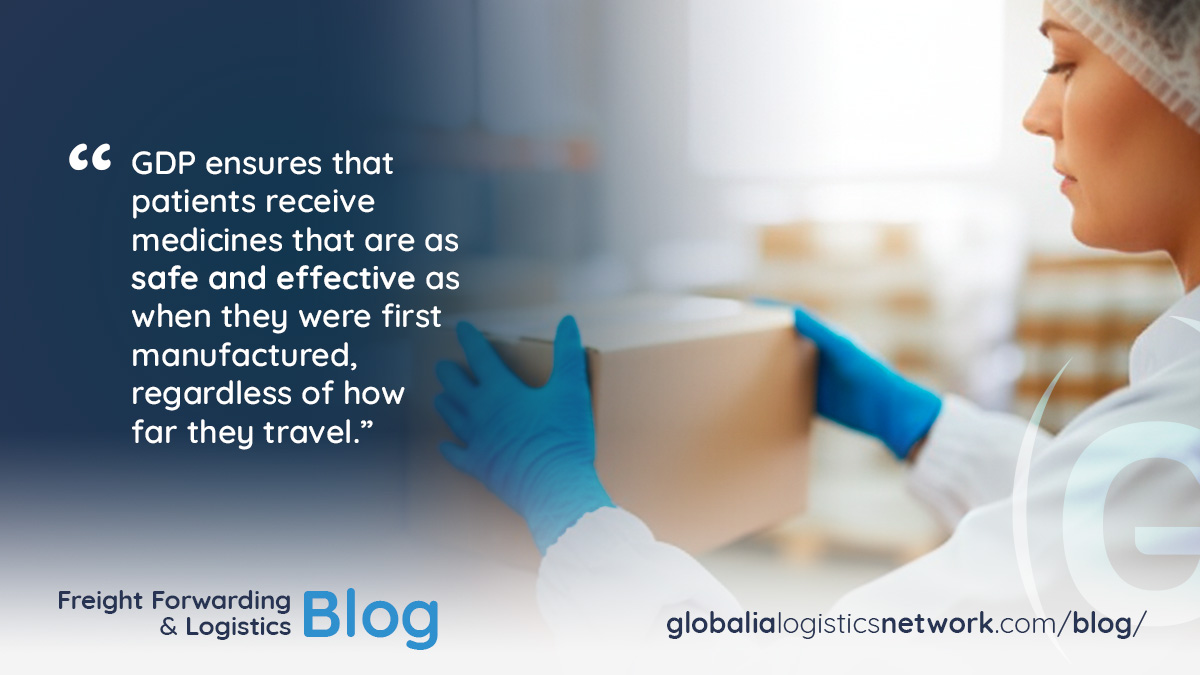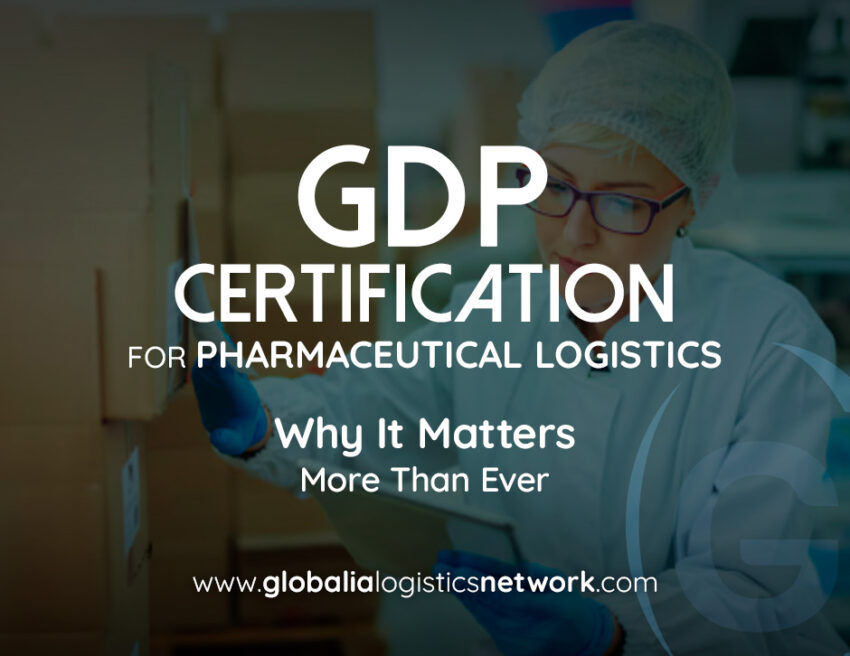The global pharmaceutical industry is expanding faster than ever, with new markets, complex regulations, and increasing demands for safe and efficient delivery of medicines. As supply chains grow more globalized, maintaining the integrity, safety, and quality of temperature-sensitive pharmaceuticals during transport has become a critical challenge. This is where GDP Certification for Pharmaceutical Logistics comes into play.
Did you know that the World Health Organization (WHO) estimates that up to 25% of vaccines and medicines are degraded by the time they reach patients due to improper storage and handling? This alarming figure underscores the importance of strong compliance standards that ensure the highest levels of care throughout the pharmaceutical supply chain. In 2026 and beyond, obtaining and maintaining GDP certification will be the gold standard that separates the reliable from the rest.
Understanding GDP Certification for Pharmaceutical Logistics
GDP Certification for Pharmaceutical Logistics refers to compliance with Good Distribution Practice (GDP), a set of quality standards that govern the storage, transportation, and distribution of medicines. These regulations ensure that products are consistently stored, transported, and handled under proper conditions, preserving their efficacy and safety.
The GDP framework covers every stage of the supply chain, including:
-
Temperature monitoring and control during storage and transit
-
Vehicle and equipment qualification
-
Documentation and traceability of every shipment
-
Staff training on handling sensitive pharmaceutical products
-
Risk management and corrective action systems
Essentially, GDP ensures that patients receive medicines that are as safe and effective as when they were first manufactured regardless of how far they travel.
Why GDP Certification Is Crucial for the Pharmaceutical Logistics Sector
For freight forwarders and logistics providers, GDP Certification for Pharmaceutical Logistics is not just a badge of compliance; it’s a business advantage. Moreover, in a highly regulated industry like pharmaceuticals, clients demand proof that their logistics partners can maintain product integrity under all conditions. Without GDP certification, forwarders risk losing credibility, clients, and access to high-value contracts.
Here are a few reasons why GDP certification is now indispensable:
-
Regulatory Compliance and Market Access
Authorities in the EU, the UK, and many other regions have made GDP compliance mandatory for companies dealing with medicinal products. Without certification, logistics providers may face restrictions on operations or fines. Additionally, certified companies gain smoother access to international markets since they meet global compliance expectations. -
Client Confidence and Competitive Edge
Pharmaceutical companies rely on their logistics partners to ensure safety, reliability, and transparency. GDP certification signals that a freight forwarder follows globally recognized best practices — helping attract premium clients and long-term contracts. -
Enhanced Quality Control and Risk Management
GDP certification strengthens internal processes by introducing strict quality management systems, real-time monitoring, and comprehensive documentation. This minimizes risks such as temperature excursions, shipment delays, and product spoilage. -
Sustainability and Efficiency Gains
Implementing GDP protocols encourages better use of technology and optimized routing for cold chain shipments. The result? Lower energy consumption, fewer losses, and improved overall efficiency, aligning with sustainability goals across the logistics sector.

How the Pharmaceutical Logistics Industry Is Evolving
The pharmaceutical logistics market is expected to reach $150 billion by 2030, driven by the rising demand for vaccines, biologics, and personalized medicines. These products often require cold chain logistics, highly controlled temperature environments that can maintain stability and potency from production to delivery.
This evolution is pushing logistics companies to invest in technology, training, and certifications like GDP to stay competitive. IoT-based temperature monitoring, real-time shipment visibility, and AI-driven route optimization are now integral parts of pharmaceutical freight forwarding.
Moreover, as regulators tighten quality standards worldwide, GDP certification for pharmaceutical logistics is becoming a benchmark for doing business across borders. In particular, companies operating in Europe, the Middle East, and Asia are prioritizing GDP compliance to tap into lucrative healthcare logistics contracts.
Key Elements of GDP Compliance in Pharmaceutical Logistics
To obtain and maintain GDP certification, logistics companies must meet several critical criteria:
-
Temperature-Controlled Facilities: Properly equipped warehouses with temperature mapping, backup power, and monitoring systems.
-
Qualified Transportation Equipment: Vehicles with calibrated temperature control units, validated routes, and automated alerts.
-
Robust Documentation: Every step — from loading to delivery — must be logged, verified, and auditable.
-
Trained Personnel: Staff must be trained to handle sensitive pharmaceutical products and respond to deviations effectively.
-
Quality Management System (QMS): A formal structure to oversee compliance, handle corrective actions, and continuously improve performance.
In other words, these measures ensure consistency, reliability, and transparency, three qualities that pharmaceutical clients value above all else.
The Role of Technology in GDP-Compliant Operations
Technology plays a central role in achieving and maintaining GDP certification for pharmaceutical logistics. Advanced tools are helping logistics companies overcome the limitations of manual systems and ensure compliance with strict temperature and documentation requirements.
Some of the most impactful innovations include:
-
IoT Sensors and Data Loggers: Continuous temperature monitoring and instant alerts when conditions deviate.
-
Blockchain for Traceability: Secure digital records that provide transparent and tamper-proof proof of product handling.
-
AI and Predictive Analytics: Tools that forecast potential risks such as route delays or equipment failures before they occur.
-
Digital Quality Management Systems: Centralized platforms that simplify audits, manage documentation, and ensure ongoing compliance.
In short, technology doesn’t just make GDP compliance easier; it transforms it into a strategic advantage for freight forwarders.
What’s Next for Pharmaceutical Logistics Companies
The demand for high-quality healthcare logistics will be on the rise, especially with the growing trade of vaccines, biologics, and gene therapies. The European Union and other major regions are expected to introduce updated guidelines emphasizing sustainability, transparency, and resilience in pharmaceutical logistics standards.
Therefore, for logistics providers, this means that GDP certification will evolve too, with greater focus on digitalization, automation, and continuous monitoring. Forwarders who stay ahead of these trends will find themselves in the best position to capture new business opportunities and meet customer expectations.
Conclusion
In today’s complex and fast-paced supply chain environment, GDP Certification for Pharmaceutical Logistics is becoming essential. It demonstrates commitment to quality, safety, and reliability in one of the most sensitive and high-stakes industries in the world.
For freight forwarders, achieving and maintaining GDP certification unlocks access to new markets, builds client trust, and ensures compliance with international regulations. Lastly, as pharmaceutical products become more specialized and distribution routes more complex, only those companies with the highest standards will remain competitive.


